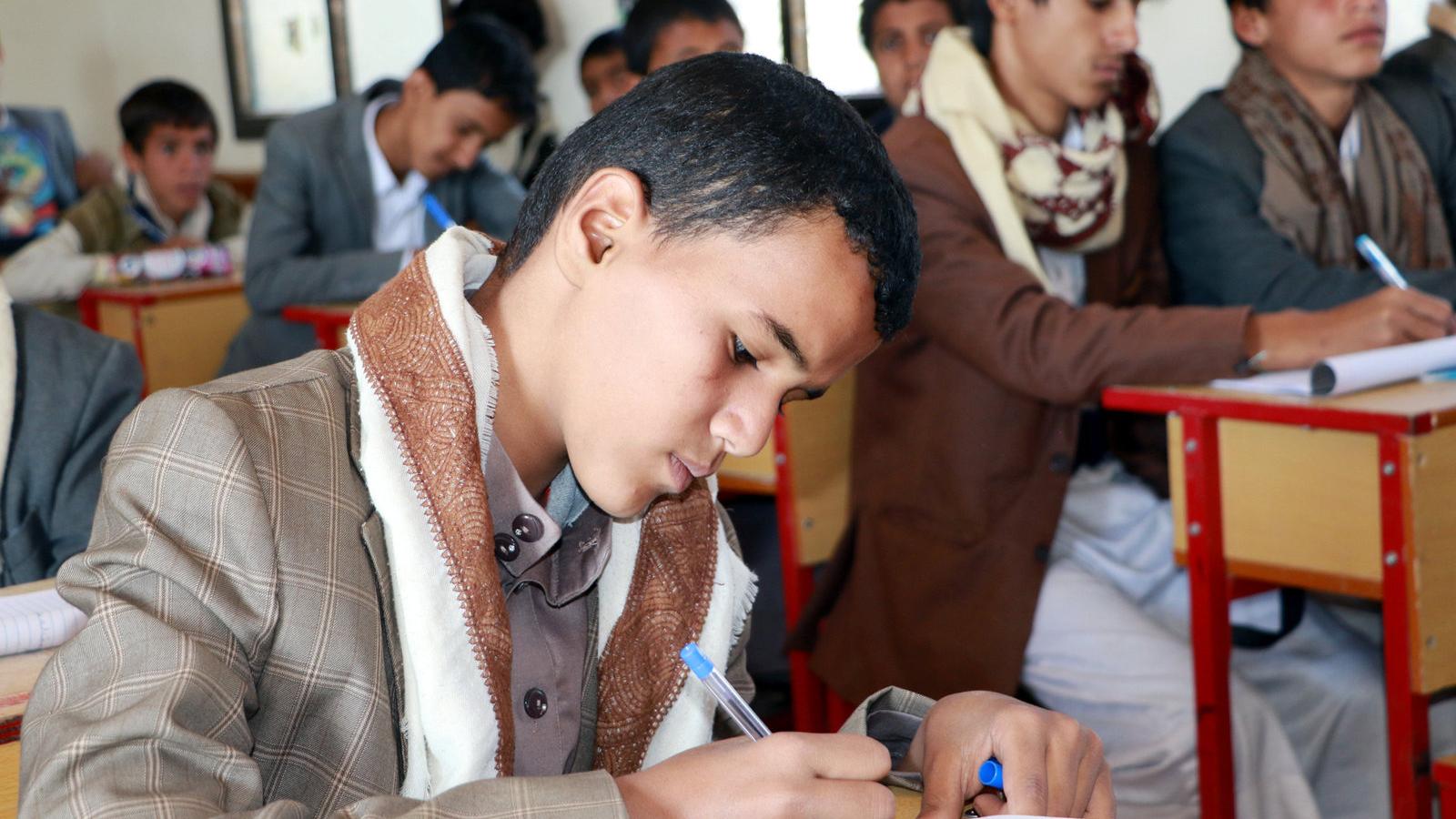Young survivors of Yemen school bus air strike return to class amidst fears of future attacks
Students attend the morning drills at their school which lost pupils in an August 2018 Saudi-led air strike on a school bus in Saada province, Yemen, Oct. 6, 2018.
In a small school in Yemen’s Saada province, the absence of dozens of their classmates killed in an air strike on a bus weighed heavily on the young survivors as they returned to classes.
Ahmad Ali Hanash, 14, struggled to hold back tears as he recalled the friends he lost in the attack by a Saudi-led military alliance on a market in Saada in northern Yemen in August.
“Their blood will not be in vain, we will avenge them by getting an education, we will avenge them by learning,” Hanash, who was on the bus, told Reuters. “I thank God for surviving the attack, the ugly crime.”
As the survivors resumed their lives, joining morning exercise drills in the sand yard of the two-story Al Falah primary school, or attending classes in wheelchairs alongside peers seated at wooden desks, other students said they feared more attacks in the war-torn country.
“We are sad after we lost our dearest schoolmates, and we are worried that the enemy will strike the school,” said 15-year-old Sadiq Amin Jaafar. “But we will continue our education.”
Related: Civilians say ‘time to say no for war’ after dozens of Yemeni children die in school bus attack
Saudi Arabia, which leads a coalition of Arab states fighting against the Iran-aligned Houthi movement that controls north Yemen, said last month that the coalition accepted that the attack had killed dozens of people, including children on the bus, and that it was unjustified.
The kingdom and its ally the United Arab Emirates receive Western political support and buy billions of dollars a year in arms from the United States and European powers including Britain and France.
The alliance has launched thousands of air strikes in a campaign to restore the internationally recognized government, killing hundreds of civilians at hospitals, schools, markets, and weddings.
International pressure has mounted on the kingdom to seek a political deal with the Houthi group in a 3 1/2 year war that has killed more than 10,000 people and pushed the already impoverished country to the brink of famine.
The alliance says it does not intentionally target civilians. The Houthis have also been criticized by rights groups.
Nearly half a million children in Yemen have dropped out of school since 2015, bringing the total number of out-of-school children to 2 million, according to a UNICEF report in March.
But teacher Abdul Wahab Salah said that fear of coalition attacks on Saada, a Houthi stronghold, would not deter the school or students.
“It pains us that we lost so many of our students. They were exceptional and they were committed,” he said.
“We also are worried (about attacks), but we will continue to build future generations.”
Our coverage reaches millions each week, but only a small fraction of listeners contribute to sustain our program. We still need 224 more people to donate $100 or $10/monthly to unlock our $67,000 match. Will you help us get there today?
